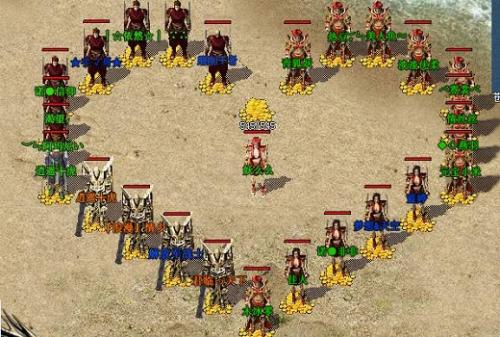sifuchuanqi: Understanding the Concept of Sifu and the Art of Chuanqi
In the world of martial arts and ancient traditions, the term "sifuchuanqi" combines two critical components: "sifu" and "chuanqi." The term "sifu," which translates to "master" or "teacher," denotes a profound level of expertise and commitment in teaching martial arts or any skill that requires mastery. Meanwhile, "chuanqi," usually associated with the concept of "transmission of skills," particularly emphasizes the lineage and legacy through which martial knowledge is passed down from one generation to another. Understanding the significance of these terms not only offers insights into martial arts practices but also reflects cultural values about mentorship, respect, and the importance of preserving ancient techniques.

To fully appreciate the concept of "sifuchuanqi," it is essential to delve into the attributes that define both a sifu and the process of chuanqi. A sifu is not merely a teacher; they embody the essence of wisdom, experience, and tactical knowledge in martial arts. Typically, a sifu has undergone rigorous training, often dedicating years or even decades to perfect their craft. This dedication is evident in their approach to teaching, where they instill discipline, respect, and a deep connection to the art form they represent. Moreover, chuanqi serves as the bridge linking past traditions with contemporary practice, allowing for a rich exchange of knowledge that keeps martial art forms alive. The dual nature of sifuchuanqi emphasizes that the journey of skill acquisition is not a solitary one; it is a collective endeavor marked by respect towards ones teachers and the traditions they uphold.
The Role of a Sifu in the Transmission of Martial Arts
The role of a sifu in martial arts extends beyond just imparting techniques; it is about nurturing a holistic understanding of the art. A sifu serves not only as a coach but also as a mentor who guides students through their personal and physical development. This relationship is often likened to a familial bond, where the sifu takes on a paternal or maternal role, fostering a supportive environment for students. The trust established in this relationship encourages students to explore their limits while cultivating virtues such as humility, perseverance, and respect for others. As they learn martial arts, students are not merely acquiring physical skills; they are also embracing crucial life lessons that a sifu imparts through their teachings.
Furthermore, the practice of chuanqi emphasizes the importance of lineage and history within martial arts communities. By understanding the origins and evolution of their chosen discipline, students are empowered to appreciate the hard work that their predecessors invested into cultivating it. The transmission of chuanqi allows for a unique melding of old and new techniques, where students can innovate while respecting traditional foundations. Through workshops, demonstrations, and personal sparring sessions, the essence of sifuchuanqi thrives and evolves, ensuring martial arts remain dynamic yet rooted in tradition.
Connecting Modern Practice with Traditional Teachings
As martial arts continue to evolve globally, the essence of sifuchuanqi remains crucial. In modern practice, many martial artists seek not only physical fitness but also a profound connection to the heritage of their art. Schools around the world are increasingly acknowledging the importance of honoring the principles that underpin martial traditions, guiding students to adopt a respectful attitude towards their instructors and the lineage of teachings they represent. As a result, the dynamics of sifuchuanqi foster a space where martial ethics are reinforced and protective practices are upheld. This modern revival of interest in sifuchuanqi reflects a broader cultural appreciation for ancestral wisdom in an age where new techniques and philosophies emerge regularly.
Through community training sessions, online courses, and social media, future generations have unprecedented access to martial arts teachings. However, without the fundamental principles of respect and dedication that a sifu represents, this access could lead to a dilutive experience of learning. It is imperative, therefore, for martial artists today to seek not only skill but also a deeper understanding of the philosophies and values embodied in the sifuchuanqi legacy. This pursuit enriches not only their training experience but also promotes a healthier community that honors its past while adapting to the present.
Q&A
Question: What is the significance of having a sifu in martial arts training?
Answer: A sifu plays a crucial role in martial arts training by acting as a mentor and teacher. They provide not only technical instruction but also impart life lessons and values fundamental to martial arts, fostering a supportive environment that encourages personal development and respect.
Question: How does chuanqi contribute to the evolution of martial arts?
Answer: Chuanqi contributes to the evolution of martial arts by acting as a link between historical practices and contemporary approaches. It facilitates the transmission of knowledge across generations, allowing martial artists to innovate while respecting traditional foundations and cultivating a continuous exchange of skills and techniques.

sifuchuanqi: Understanding the Concept of Sifu and the Art of Chuanqi:目前有0条评论